 A year full of action has ended, and another one is already at the starting post. A perfect moment to shine a spotlight on some of the significant achievements of our teams at the home of Collective Impact in Israel.
A year full of action has ended, and another one is already at the starting post. A perfect moment to shine a spotlight on some of the significant achievements of our teams at the home of Collective Impact in Israel.
We wish you a Happy New Year, a year of effective collaboration and significant positive impact on Israeli society!
>> Read here
Sheatufim Newsletter


 We are happy and excited to share a new knowledge review from Sheatufim, which deals with a topic that has been at the heart of our work in recent years: Multi-Sector Collaborative Action. A chance to expand your knowledge in the worlds of collaborative processes, and better understand the connections between the public sector, the social sector and the business sector. Another glimpse into our current activities – in a fascinating episode of the Geekonomy Podcast, featuring Shlomo Dushi, CEO of Sheatufim in a conversation about complex social problems and our journey to solve them>>
We are happy and excited to share a new knowledge review from Sheatufim, which deals with a topic that has been at the heart of our work in recent years: Multi-Sector Collaborative Action. A chance to expand your knowledge in the worlds of collaborative processes, and better understand the connections between the public sector, the social sector and the business sector. Another glimpse into our current activities – in a fascinating episode of the Geekonomy Podcast, featuring Shlomo Dushi, CEO of Sheatufim in a conversation about complex social problems and our journey to solve them>>  The spring holidays are here, bringing a momentum of growth and renewal. As the home of Collective Impact in Israel, we continue to drive three cross-sector initiatives that address root problems in Israeli society: the TOP15 initiative to promote excellence in science and technology education, the Initiative to reduce intimate partner violence, and the Initiative to improve the quality of life and loneliness in the aged. In addition, an exciting new venture is being launched: The School of Senior Management in Local Government. >>
The spring holidays are here, bringing a momentum of growth and renewal. As the home of Collective Impact in Israel, we continue to drive three cross-sector initiatives that address root problems in Israeli society: the TOP15 initiative to promote excellence in science and technology education, the Initiative to reduce intimate partner violence, and the Initiative to improve the quality of life and loneliness in the aged. In addition, an exciting new venture is being launched: The School of Senior Management in Local Government. >> 2021 was a significant and fascinating year. As a Home for Collective Impact, we have led and launched three cross-sectoral initiatives. Also this year, we closed a wide-ranging chapter of 13 years in which we accompanied the government ministries in Israel in a variety of public participation processes.During our work, we have developed and perfected unique practices and tools that have helped us and our government partners to implement accurate and effective processes. Now, at the end of this chapter, we have put together these tools in the full
2021 was a significant and fascinating year. As a Home for Collective Impact, we have led and launched three cross-sectoral initiatives. Also this year, we closed a wide-ranging chapter of 13 years in which we accompanied the government ministries in Israel in a variety of public participation processes.During our work, we have developed and perfected unique practices and tools that have helped us and our government partners to implement accurate and effective processes. Now, at the end of this chapter, we have put together these tools in the full

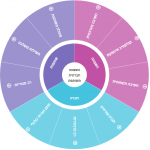 As in any evolving discipline, the world of Collaborative Processes has its own language, and unique terms which need to be mastered by anyone who wants to lead such processes.
As in any evolving discipline, the world of Collaborative Processes has its own language, and unique terms which need to be mastered by anyone who wants to lead such processes. 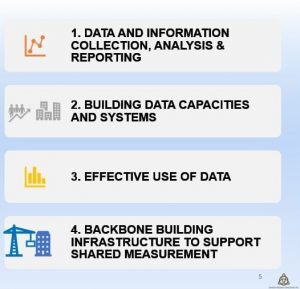

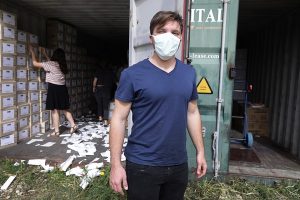 We chose to dedicate our first 2021 newsletter to
We chose to dedicate our first 2021 newsletter to 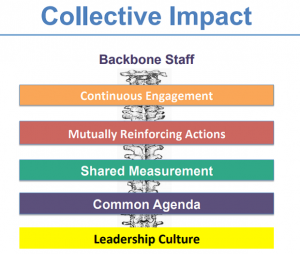 In this edition of Sheatuf-yeda we are proud to share a new document summarizing the participative processes we have coordinated in the Ministry of Education for the past 8 years. We were also pleased to take part in the International "Champions for Change 2020" conference held in September – You are invited to take a look at the dilemmas faced by Collective Impact initiatives during the Corona crisis and the changes the model is undergoing. Finally – embracing the principles of systemic thinking is a necessity in any process of social change, especially at this time, when numerous systems face extraordinary challenges. A recent meeting of the "Open Studio", hosted by Lilach Dora, dealt with Systemic Thinking and ways to implement it in leading social change.
In this edition of Sheatuf-yeda we are proud to share a new document summarizing the participative processes we have coordinated in the Ministry of Education for the past 8 years. We were also pleased to take part in the International "Champions for Change 2020" conference held in September – You are invited to take a look at the dilemmas faced by Collective Impact initiatives during the Corona crisis and the changes the model is undergoing. Finally – embracing the principles of systemic thinking is a necessity in any process of social change, especially at this time, when numerous systems face extraordinary challenges. A recent meeting of the "Open Studio", hosted by Lilach Dora, dealt with Systemic Thinking and ways to implement it in leading social change.  In this edition of Sheatuf-yeda we are happy to share two significant knowledge products recently published by Sheatufim. One is a first-of-its-kind toolbox that assists in establishing a municipal ecosystem to promote diverse social issues. The toolbox was built according to the principles of systemic thinking and the collective impact approach. The second is an article that was also written as part of our professional work on the 5X2 initiative. It examines the initiative through the prism of collaborative governance, with an emphasis on the mechanisms of building trust and cooperation.
In this edition of Sheatuf-yeda we are happy to share two significant knowledge products recently published by Sheatufim. One is a first-of-its-kind toolbox that assists in establishing a municipal ecosystem to promote diverse social issues. The toolbox was built according to the principles of systemic thinking and the collective impact approach. The second is an article that was also written as part of our professional work on the 5X2 initiative. It examines the initiative through the prism of collaborative governance, with an emphasis on the mechanisms of building trust and cooperation. 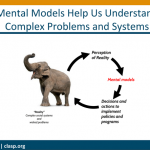 The past months have been challenging and fascinating. Like many other organizations, we found new and unconventional ways to deal with the outbreak of the Corona virus and its consequences, like leading
The past months have been challenging and fascinating. Like many other organizations, we found new and unconventional ways to deal with the outbreak of the Corona virus and its consequences, like leading 
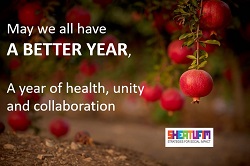 The new Jewish year begins under a cloud of constant change and uncertainty, as we face the challenges of dealing with the corona virus. The economic and social implications have created a state of emergency that requires the mobilization of all the players involved in socio-economic change. In the comming year, we will direct our professional capabilities to strengthening the tools and perceptions of leaders from all sectors for promoting social-systemic change, building relationships of trust and collaboration for the benefit of Israeli society.
The new Jewish year begins under a cloud of constant change and uncertainty, as we face the challenges of dealing with the corona virus. The economic and social implications have created a state of emergency that requires the mobilization of all the players involved in socio-economic change. In the comming year, we will direct our professional capabilities to strengthening the tools and perceptions of leaders from all sectors for promoting social-systemic change, building relationships of trust and collaboration for the benefit of Israeli society.  These are complicated times for all of us, moving back and forth between emergency and routine. We continue promoting collaborative social action, learning and teaching the best ways to implement it at this time. We have chosen to share with you two original articles written by our team (in Hebrew), and another recent article written by Liz Weaver, Co-CEO of the TAMARACK Institute in Canada. The articles deal with collaborative social impact from different perspectives: The first – presents the business sector’s point of view of collaborative processes through the unique story of the Business Coalition in the 5×2 Initiative. The second – offers diverse ways to achieve inclusive online participation, and the third looks at Collective Impact initiatives on the day after the Corona virus.
These are complicated times for all of us, moving back and forth between emergency and routine. We continue promoting collaborative social action, learning and teaching the best ways to implement it at this time. We have chosen to share with you two original articles written by our team (in Hebrew), and another recent article written by Liz Weaver, Co-CEO of the TAMARACK Institute in Canada. The articles deal with collaborative social impact from different perspectives: The first – presents the business sector’s point of view of collaborative processes through the unique story of the Business Coalition in the 5×2 Initiative. The second – offers diverse ways to achieve inclusive online participation, and the third looks at Collective Impact initiatives on the day after the Corona virus. 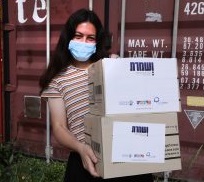 We thought that our Passover newsletter would look completely different, but reality struck. Unlike past years, this Pesach which we usually celebrate as a festival of Freedom, is dominated by isolation and seclusion, and spring is taking on a different significance as well. Like many others, we have adjusted ourselves to the new limitations, with the goal of continuing to promote collaborative social impact. These days, we understand its importance and necessity more than ever. In this newsletter you will find a brief update on our core activities and get a glimpse of how we are harnessing our experience and skill in managing and leading multi-sector collaborative action to benefit society in this challenging time, through involving philanthropy, business and social organizations, in coordination with government ministries.
We thought that our Passover newsletter would look completely different, but reality struck. Unlike past years, this Pesach which we usually celebrate as a festival of Freedom, is dominated by isolation and seclusion, and spring is taking on a different significance as well. Like many others, we have adjusted ourselves to the new limitations, with the goal of continuing to promote collaborative social impact. These days, we understand its importance and necessity more than ever. In this newsletter you will find a brief update on our core activities and get a glimpse of how we are harnessing our experience and skill in managing and leading multi-sector collaborative action to benefit society in this challenging time, through involving philanthropy, business and social organizations, in coordination with government ministries. 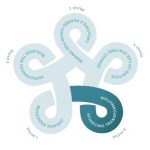
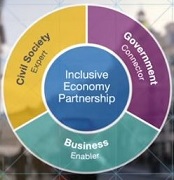 Any collaborative process involving a variety of players from the public, social, and business sectors is, by its very nature, a complex one. Its success depends, among other things, on the ability of its leadership to create a broad partnership within the inter-organizational and interpersonal reality, and to face the ongoing challenges of building trust and reaching consensus among a wide range of stakeholders.In initiatives like Collective Impact, the “Backbone Organization” is responsible for all of the above functions. In public participation processes, this role will be filled by a facilitative body. Either way, it is a separate entity from all other stakeholders, whose role is to lead everyone towards the common goal.
Any collaborative process involving a variety of players from the public, social, and business sectors is, by its very nature, a complex one. Its success depends, among other things, on the ability of its leadership to create a broad partnership within the inter-organizational and interpersonal reality, and to face the ongoing challenges of building trust and reaching consensus among a wide range of stakeholders.In initiatives like Collective Impact, the “Backbone Organization” is responsible for all of the above functions. In public participation processes, this role will be filled by a facilitative body. Either way, it is a separate entity from all other stakeholders, whose role is to lead everyone towards the common goal.  A new year is upon us, bringing exciting beginnings alongside significant endings. You are invited to catch up on the fascinating stage of the 5X2 Initiative for STEM Excellence, on our participation processes in government offices, and our recently launched "Sheatuf-yeda" and Studio for Collaborative Social Processes.
A new year is upon us, bringing exciting beginnings alongside significant endings. You are invited to catch up on the fascinating stage of the 5X2 Initiative for STEM Excellence, on our participation processes in government offices, and our recently launched "Sheatuf-yeda" and Studio for Collaborative Social Processes.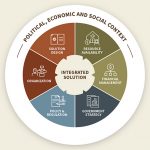 Collaborative social impact is created when diverse actors, from all sectors work together for a common purpose. While recognizing the importance and significance of interaction between the sectors, we have also learned that it is important to recognise the unique place, advantages and challenges that each sector brings to the table. In this spirit, we have chosen to devote the current Sheatuf-yeda to the third sector's place in collaborative processes, and to shine a spotlight on its perspective on cross-sector action in various models.
Collaborative social impact is created when diverse actors, from all sectors work together for a common purpose. While recognizing the importance and significance of interaction between the sectors, we have also learned that it is important to recognise the unique place, advantages and challenges that each sector brings to the table. In this spirit, we have chosen to devote the current Sheatuf-yeda to the third sector's place in collaborative processes, and to shine a spotlight on its perspective on cross-sector action in various models.  Collaborative Social Impact can be achieved through a variety of strategies, each suited to different circumstances and goals. Public participation has recently become a core strategy in this regard. In our experience, as public participation practitioners in Israel for over a decade, we have learned that all these benefits are only gained when the participation processes are based on a well-founded conceptual and methodological infrastructure. When these are absent, there is no added value, and there is even a risk of damage. Here are examples of two very different processes, one from Hungary and one from Israel. There is, of course, a wide range of possibilities between these two examples, but what distinguishes between them is, primarily the professionalism and skill of process leaders and operators and their ability to formulate agreement and build trust.
Collaborative Social Impact can be achieved through a variety of strategies, each suited to different circumstances and goals. Public participation has recently become a core strategy in this regard. In our experience, as public participation practitioners in Israel for over a decade, we have learned that all these benefits are only gained when the participation processes are based on a well-founded conceptual and methodological infrastructure. When these are absent, there is no added value, and there is even a risk of damage. Here are examples of two very different processes, one from Hungary and one from Israel. There is, of course, a wide range of possibilities between these two examples, but what distinguishes between them is, primarily the professionalism and skill of process leaders and operators and their ability to formulate agreement and build trust.  In the last decade, “Collective Impact” has developed from a basic concept in a groundbreaking article, to a vital, diverse and effective field of action and learning. Organizations, researchers, and multi-stakeholders initiatives around the world are developing practical tools alongside theoretical models that enrich the accumulated discourse and experience. We chose to dedicate the first "Sheatuf-yeda" newsletter, to a hot update from the global knowledge front, dealing with the first stages of Collective Impact processes. We added a practical tool developed by our professional teams, for the purpose of building consent between multi stakeholders taking part in Collective Impact initiatives.
In the last decade, “Collective Impact” has developed from a basic concept in a groundbreaking article, to a vital, diverse and effective field of action and learning. Organizations, researchers, and multi-stakeholders initiatives around the world are developing practical tools alongside theoretical models that enrich the accumulated discourse and experience. We chose to dedicate the first "Sheatuf-yeda" newsletter, to a hot update from the global knowledge front, dealing with the first stages of Collective Impact processes. We added a practical tool developed by our professional teams, for the purpose of building consent between multi stakeholders taking part in Collective Impact initiatives.